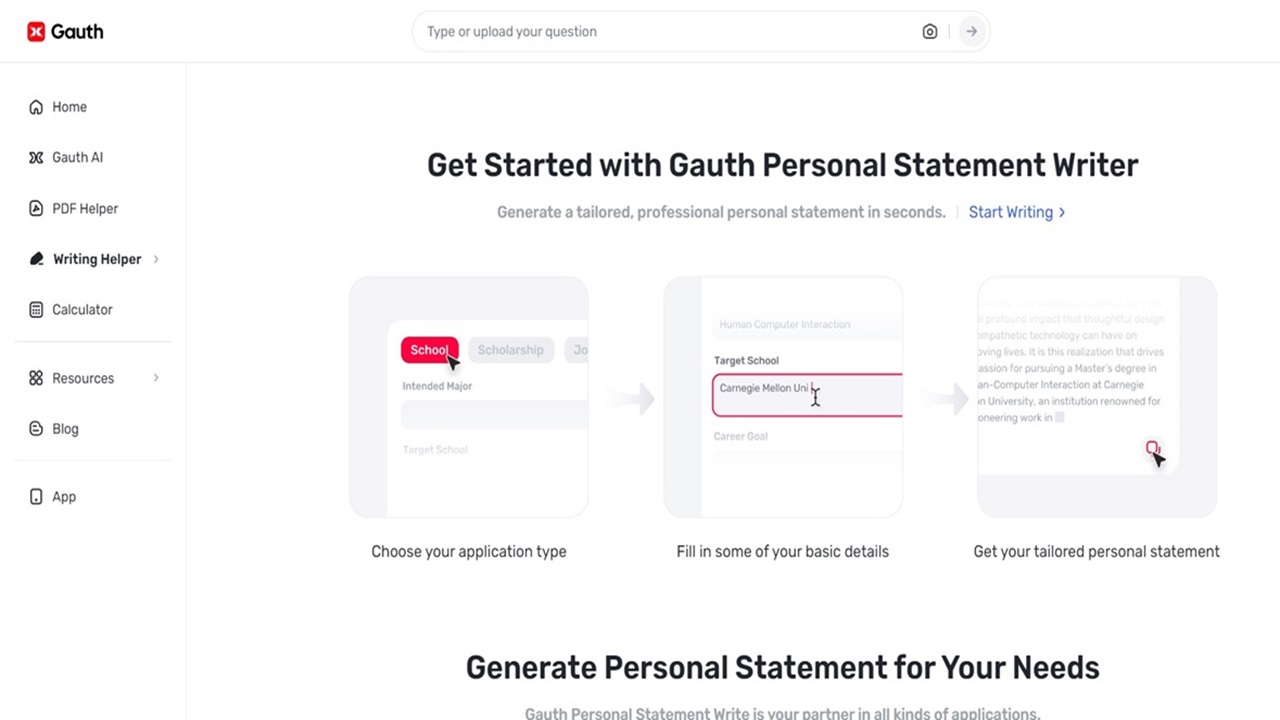It is exciting and rather challenging to apply to a liberal arts college. Writing the personal statement of the application process is the most daunting task, as it gives students the best opportunity to show their creativity, their ability to think well, and their passion for the humanities. Gauth offers valuable support in helping applicants meet word count requirements while preserving the quality and integrity of their writing. Here’s how Gauth can assist in navigating word limits for journalism applications.
Crafting Clear and Concise Narratives
Every word counts in journalism, and the same maxim applies to personal statements or essays for journalism programs. It is overwhelming because, in this field, applicants must express their ideas while strictly adhering to tight word limits. Gauth can thus ease this burden through the analysis of the content and the suggestions of ways to condense ideas without meaning loss. For example, the applicant would have a heartbreaking story to tell why they want to study journalism, but the first draft could be too wordy or contain information that it doesn’t need to include. Gauth can pick out places where sentences can be tightened or rephrased so that at least the core message is more powerful but shorter. This allows applicants to submit essays that are both clear and within the required word count.
Avoiding Overly Complex Language
In journalism, writing should be accessible, and using overly complex language can distract from the message. The same applies when writing an application essay. Gauth helps applicants avoid unnecessary jargon or long-winded explanations by suggesting more straightforward and effective ways to communicate ideas. This is especially useful for staying within word limits while maintaining clarity. For instance, rather than using the words “I have a passionate and firm interest in investigative journalism because, through it, one digs out unknown truths, “Gauth can suggest the most straightforward expression in its place reads “I’m passionate about investigative journalism because it uncovers hidden truths.” The core of the idea is retained but in a fewer number of words, which would help the applicant fill in more ideas for this little space.
Prioritizing Key Information
At the same time, it turns into a bad idea to compose a long essay if there isn’t any word limit set to the whole text. In this case, it’s essential to deliver the most important information. These can be pieces of experience and motivation that an applicant deems to be crucial to his or her application. Gauth in this regard guides one by helping point out major themes and points to consider first and foremost in the essay. For example, if an applicant has a rich background in various forms of journalism, Gauth might help them focus on the experiences most aligned with the values of the journalism program they are applying to. Whether it’s investigative reporting, multimedia journalism, or a strong commitment to truth and ethics, Gauth encourages applicants to emphasize the experiences that will make the strongest impression.
Conclusion
Navigating word limits in journalism applications can be challenging, but Gauth provides valuable support in crafting clear, concise, and compelling essays. By helping applicants prioritize key information, simplify complex language, and balance depth with brevity, Gauth ensures that their writing shines even within strict word count constraints. With Gauth’s assistance, journalism applicants can submit essays that effectively communicate their passion for storytelling and their commitment to the field, all while staying within the required word limit.
